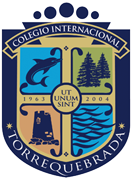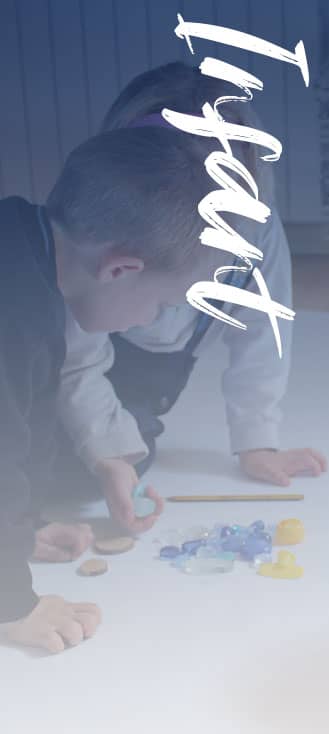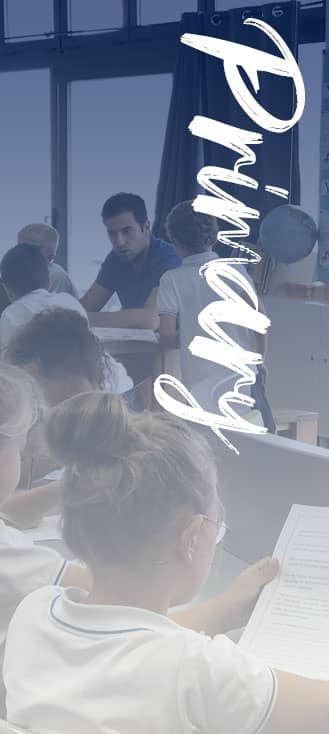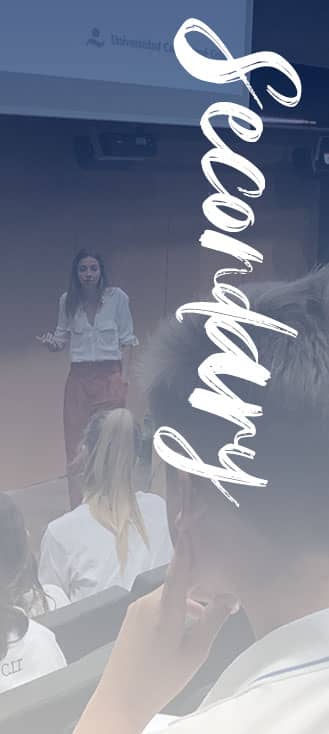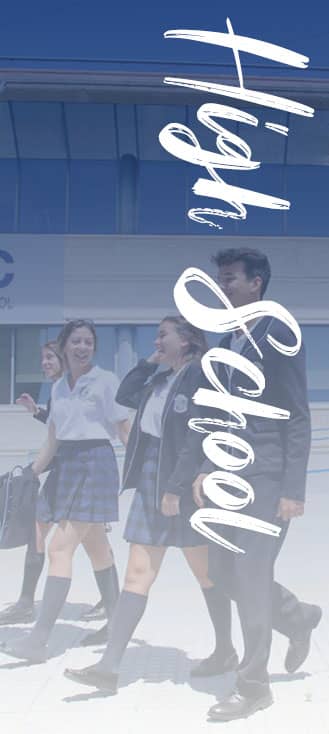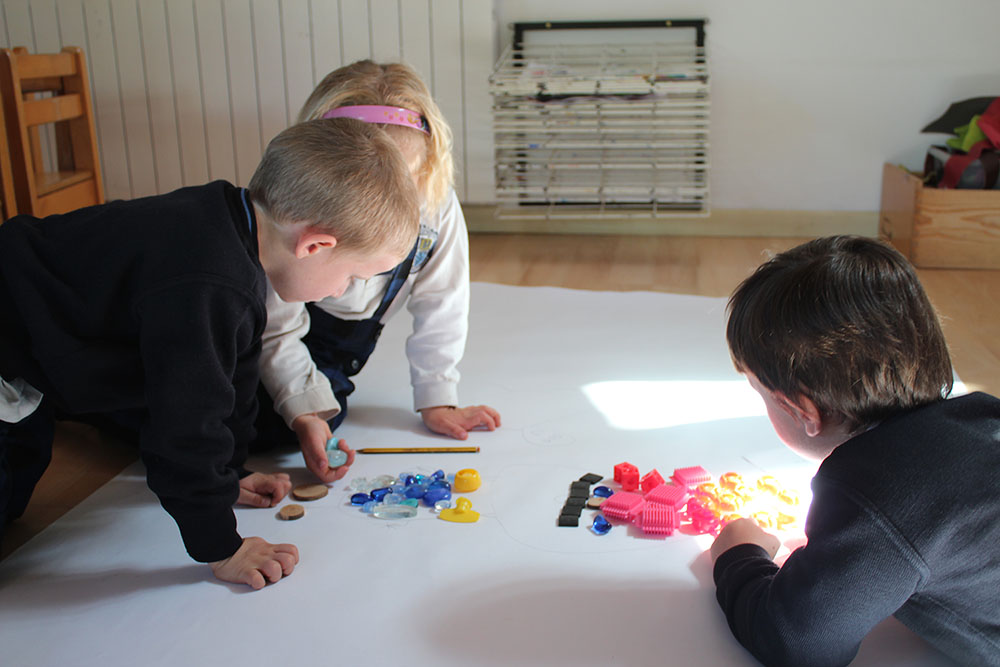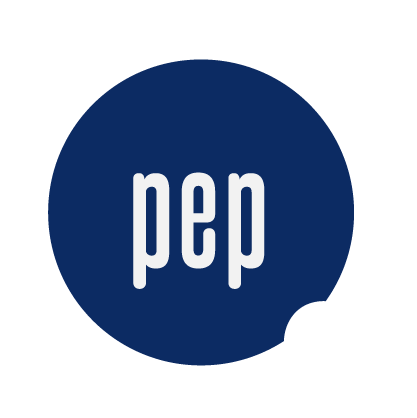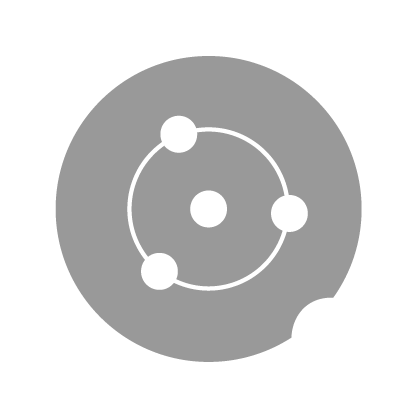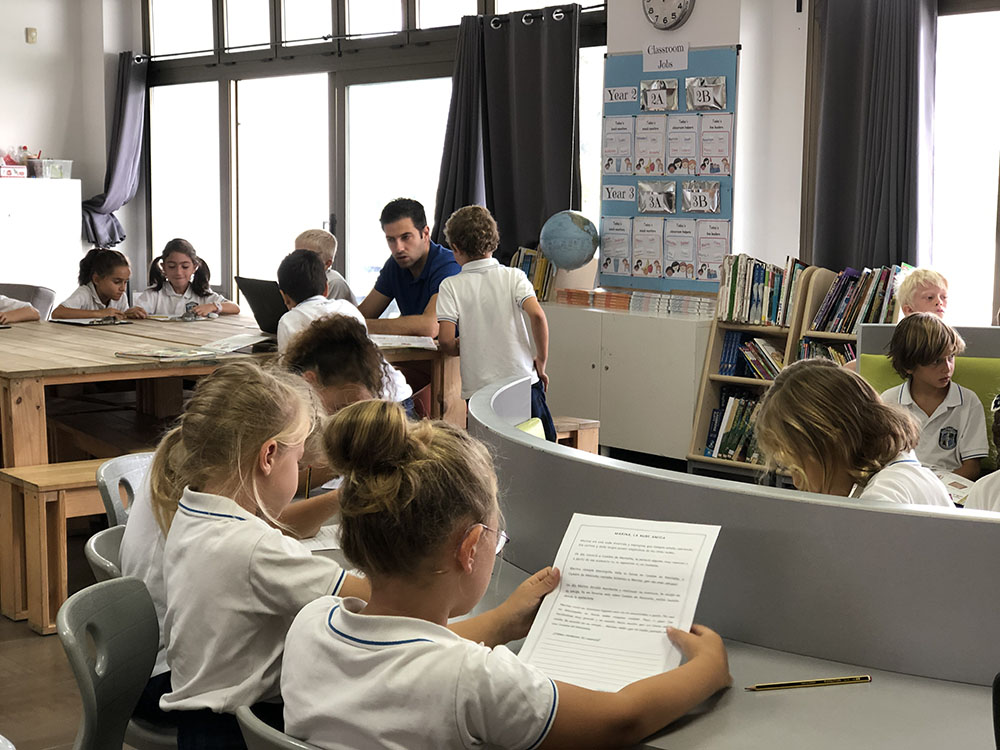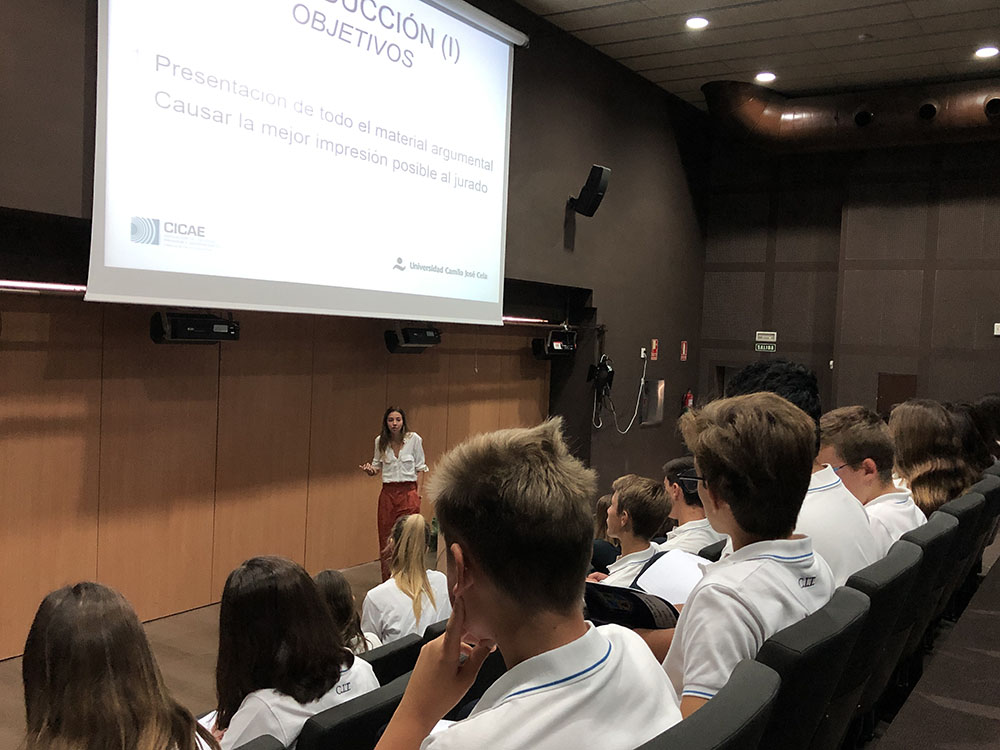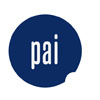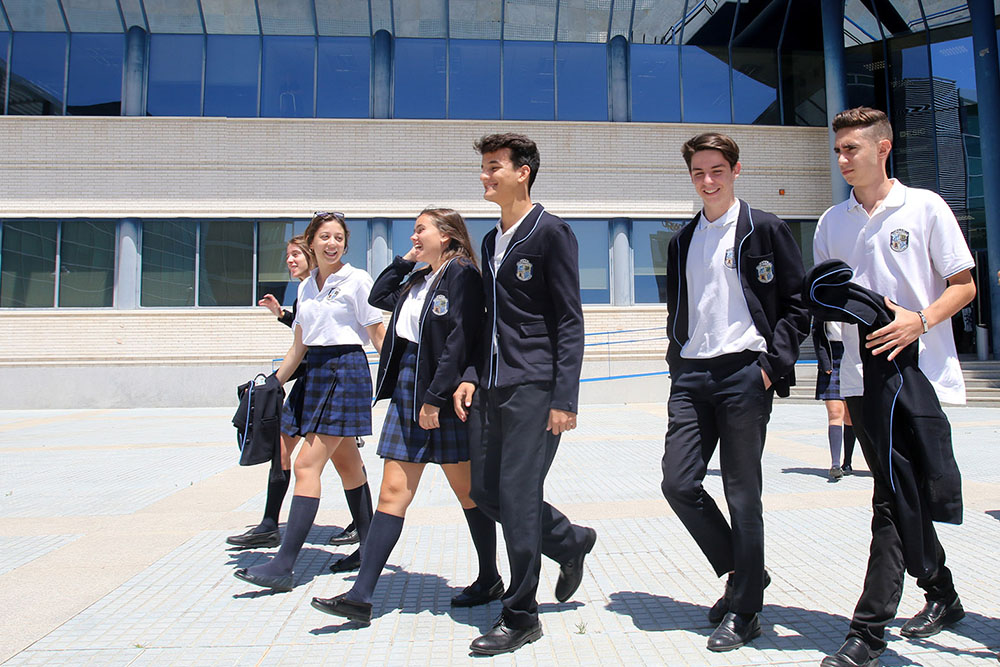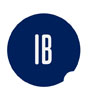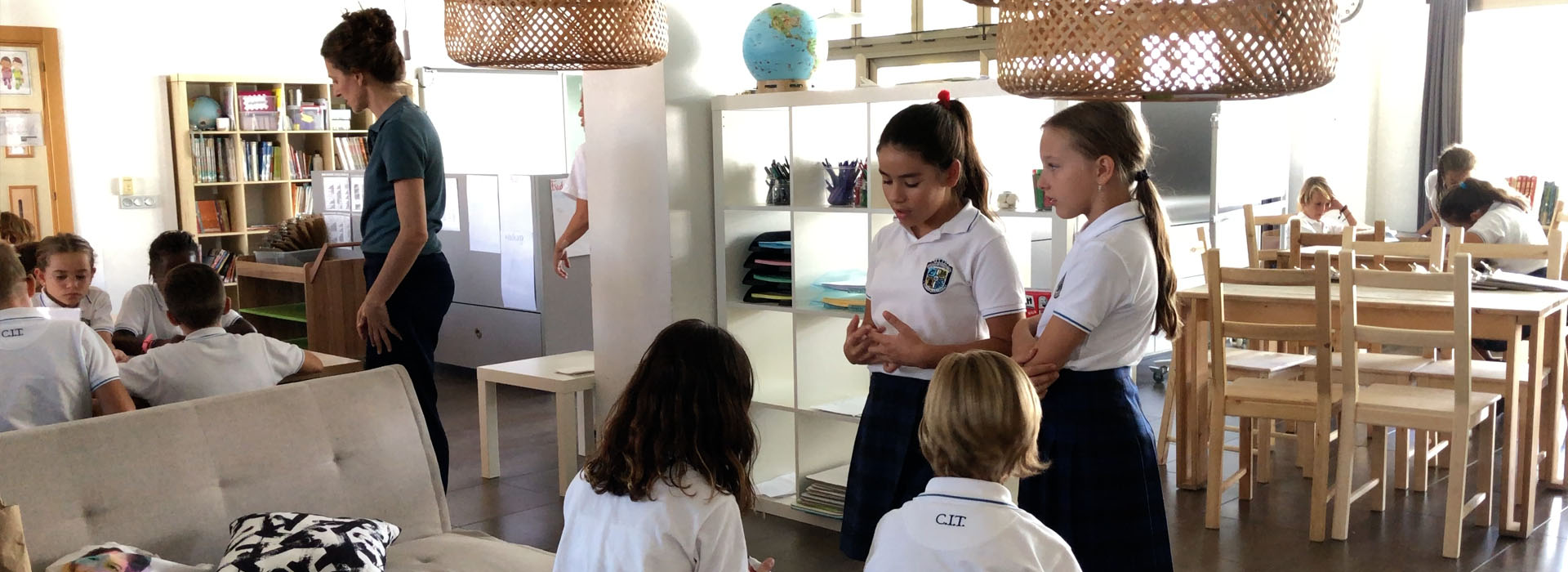
Educational project
Learning is an amazing journey
- Apply methodologies and approaches supported by the ‘learning sciences’ (neuroscience, pedagogy and psychology) on how students learn and progress.
- Incorporate in the training plan – based on a critical spirit – a progressive advance in the understanding of moral integrity, starting by distinguishing right from wrong, understanding the implications and commitments involved, until having the courage to defend what is right.
- To assume that the main role of teachers is to help students to progress, starting from the knowledge of their strengths and weaknesses, believing in their aptitudes and being able to adapt to change until they become resilient in the face of adversity.
- Promote students to progress from cooperating and sharing with others, to being able to work in teams and show empathy for others, to being able to collaborate with different cultures and be socially responsible. They are expected to move from having a lively curiosity and being creative, to being innovative and entrepreneurial.
And, as summarised in the words of the school’s founder, Sonia Díez, “students are expected to move forward by taking pride in their work, to pursue excellence. That is the great legacy, the great promise, the great commitment that our school establishes with families and with each student”.
“A perfect example of an international school”
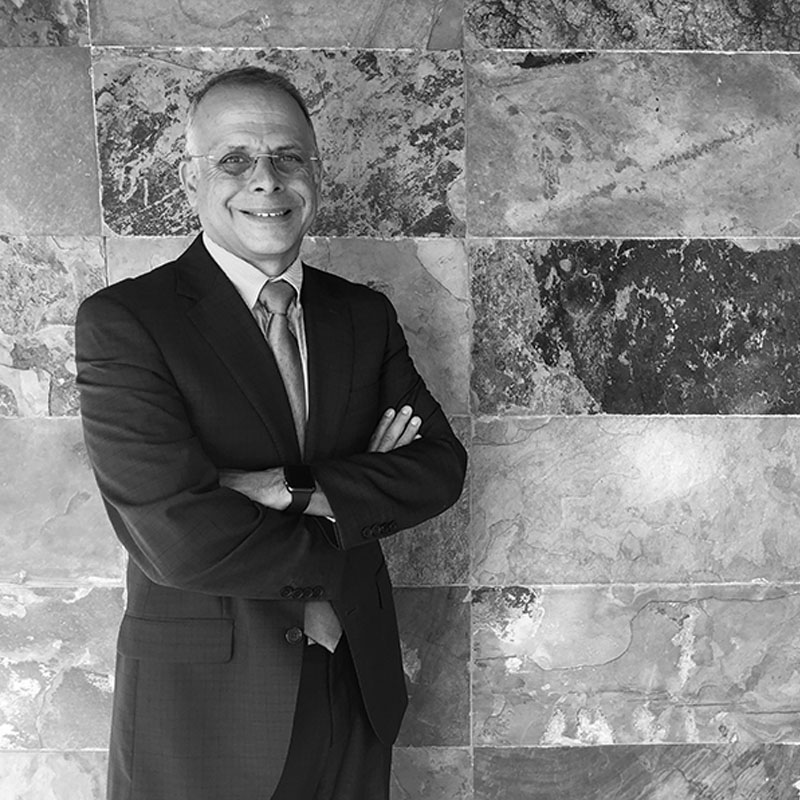
Infant
FROM 2 TO 5 YEARS OLD
Our educational project in Infants is based on an image of the competent child, capable of achieving and carrying knowledge, hypotheses and theories about the world around them. The intrigue and wonder that accompanies each child’s small discovery teaches us a new educational point of view. We develop a full and rich education caring for the social, cognitive and emotional needs on a daily basis. The spaces in which all this happens are fundamental and offer the children many opportunities to develop compatibility and well-being through materials of different nature, structured and unstructured, etc. and a hybrid environment between the outside and the inside.
We cover the British curriculum’s EYFS through the pedagogical framework of the International Baccalaureate and its PYP programme. Therefore, we create learning experiences based on inquiry and investigation, giving value to what children think – building a learning community with strong humanitarian values. For us, play and group work are fundamental when it comes to building the many skills children need for their current and future development as people, as well as the construction of their own identity; all of this alongside teachers who know how to accompany and actively listen to the child in close collaboration with families.
From the moment they enter school, we want children to grow up as autonomous, responsible people, capable of thinking and deciding – without feeling judged – and respecting coexistence in a community.
Infant
FROM 2 TO 5 YEARS OLD
We cover the British curriculum’s EYFS through the pedagogical framework of the International Baccalaureate and its PYP programme. Therefore, we create learning experiences based on inquiry and investigation, giving value to what children think – building a learning community with strong humanitarian values. For us, play and group work are fundamental when it comes to building the many skills children need for their current and future development as people, as well as the construction of their own identity; all of this alongside teachers who know how to accompany and actively listen to the child in close collaboration with families.
From the moment they enter school, we want children to grow up as autonomous, responsible people, capable of thinking and deciding – without feeling judged – and respecting coexistence in a community.
Primary
FROM 6 TO 11 YEARS OLD
Following the same approach as the Infant Educational Project, the Primary stage covers the British curriculum through the pedagogical framework of the International Baccalaureate of the PYP programme. In practice, students learn through inquiry and investigation in transdisciplinary units and by gradually building up their own portfolio.
All this takes place in age-appropriate, rich and welcoming learning landscapes where students build their learning in relation to each other, and through monitoring by their teachers with continuous and meaningful assessment.
During their time in Primary, we build a daily life where students face a wide variety of experiences and activities that allow them to learn and reason about the world around them and their relationship with it and about who they are, while at the same time acquiring fundamental skills. For this reason, we remain committed to students becoming autonomous and responsible individuals and finding the intrinsic motivation to enjoy learning.
From this moment on, they also have the opportunity to be part of the Student Council which makes decisions about the functioning and culture of the school. At the end of the Primary stage, students are prepared to face their next stage – in Secondary school – with great maturity, responsibility, culture, knowledge and values.
Secondary school
FROM 12 TO 16 YEARS OLD
In parallel to this academic curriculum, we develop an experiential curriculum for the students with the idea of living challenges and experiences outside the school that allow them to get to know themselves better, to manage new situations and to build links with other people and places. Experiences such as volunteering, expeditions, exchanges and trips bring out the best in our students.
Last but not least, students go through a ‘high employability programme’ from 1st ESO to 4th ESO to acquire competences (power skills) and skills that are the most demanded by companies in the current and future world. Within this programme, the monitoring of students and the vocational and professional career guidance programme are also part of the process. We are aware that most of the jobs for the younger generations do not yet exist and therefore, it is our responsibility to train and prepare them. All of this is accompanied by strong values which shape them, above all, as individuals.
Secondary school
FROM 12 TO 16 YEARS OLD
In parallel to this academic curriculum, we develop an experiential curriculum for the students with the idea of living challenges and experiences outside the school that allow them to get to know themselves better, to manage new situations and to build links with other people and places. Experiences such as volunteering, expeditions, exchanges and trips bring out the best in our students.
Last but not least, students go through a ‘high employability programme’ from 1st ESO to 4th ESO to acquire competences (power skills) and skills that are the most demanded by companies in the current and future world. Within this programme, the monitoring of students and the vocational and professional career guidance programme are also part of the process. We are aware that most of the jobs for the younger generations do not yet exist and therefore, it is our responsibility to train and prepare them. All of this is accompanied by strong values which shape them, above all, as individuals.
High School
FROM 17 TO 18 YEARS OLD
The Baccalaureate stage is a time of emotions, feelings, ideas and responsibilities. Students are more aware that they have little time left to decide their next step and we want to offer them a lot of support, opportunities and follow-up so that they feel confident and motivated.
During the last two years of school, students study for the International Baccalaureate Diploma, 80% in Spanish and 20% in English, which gives them access to any public or private university in Spain or around the world. Thanks to this programme, they receive excellent academic training consisting – not only knowledge in the form of concepts (in subjects such as mathematics, psychology, computer science, business management, physics, chemistry, etc.) – but also fundamental skills and abilities for their personal and professional development. At the same time, we continue to offer experiences and activities so that they continue to develop as people and have great values such as effort, being a good person, helping others, self-improvement….. For example, they also carry out a programme of Creativity, Action and Service through which they live experiences that strengthen these three areas within the two years of the Baccalaureate or the trip to India to get to know the society and the humanitarian work of the Vicente Ferrer Foundation.
They complete the ‘high employability programme’ thanks to universities and CIT’s alliances with other entities such as companies and foundations, which opens them up to more future possibilities. It is our commitment to them, that they leave school knowing, above all, themselves, that they know what kind of person they want to be, that they have the tools to fight for their dreams and that they achieve their short-term and longer-term future goals within an environment of well-being, socialisation and accompanied by teachers and professionals who know how to listen to them and get the best out of them.
